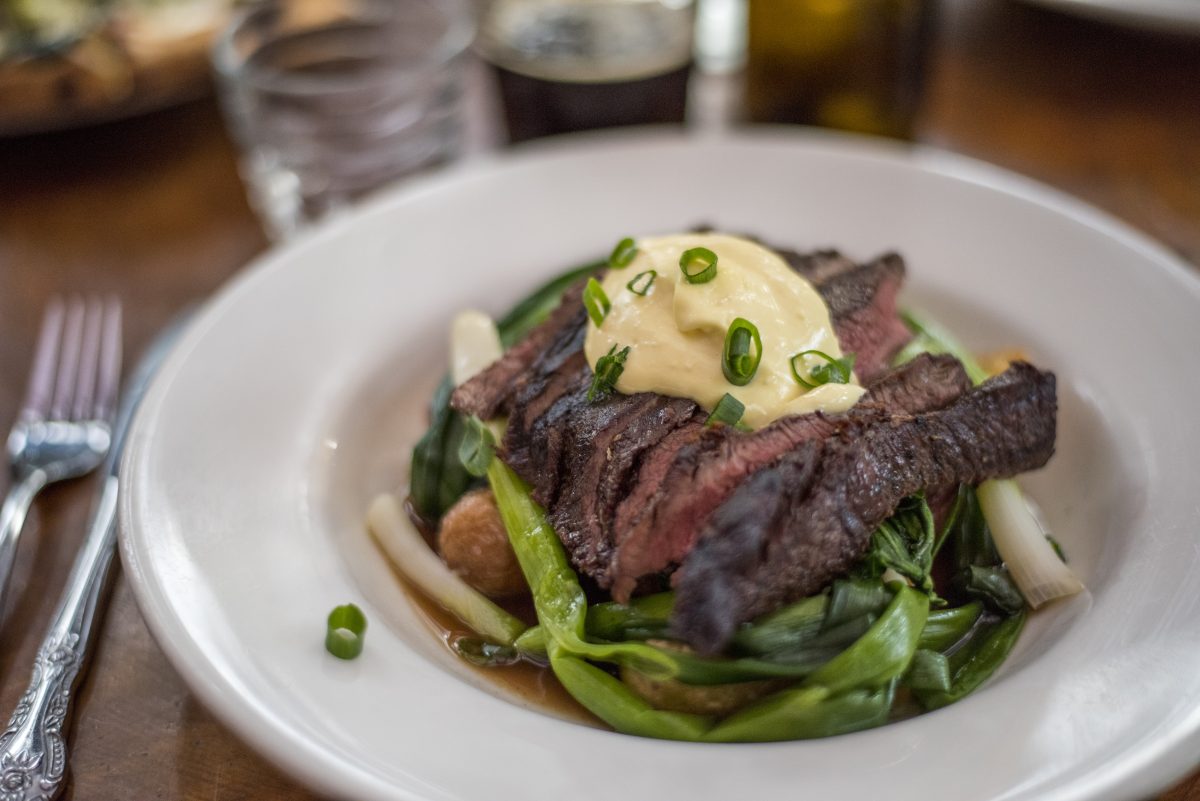Words by Tess Novotny, Photos by Sarah Northrop
Enormous ovens, silver basin sinks, and an extraordinary collection of baking mixers and utensils sat dismally still for a month at Elbe’s Edibles, a recreational marijuana bakery in Portland, Oregon that produces cannabutter-based food. The kitchen was supposed to be full of bustling activity and mingling scents of cannabis and sweet confections; cake balls, lemon bars, and sugar cookies are a few of the items listed in multicolored handwriting on Elbe’s menu that hangs in the kitchen. Elbe’s Edibles was out of business for a month following the implementation of new, strict lab testing rules for marijuana and marijuana products in Oregon on October 1, 2016.
On this date, new rules for transferring, labeling, concentration limits, packaging, and testing of marijuana and marijuana products set by the Oregon Health Authority (OHA) went into effect. Processors had to pass lab tests administered by a lab accredited by the Oregon Environmental Lab Accreditation Program (ORELAP), overseen by the OHA, to continue selling products after that deadline.
At that point, less than five labs in Oregon were accredited to administer all necessary tests for processors, and there were no labs offering tests for butter-based food. This meant that Elbe’s Edibles could not sell their products.
“The state insisted that companies comply with the new rules, but there was no avenue to do so, for many of us,” said Gretchen Palmer, Chief Administrative Officer at Elbe’s Edibles.
After a month out of work, Elbe’s Edibles passed lab tests and was approved to sell in the first week of November 2016. There are now 19 labs accredited for testing, but only four can test butter-based products. Some businesses are still waiting on lab openings to get products approved to sell.
Palmer maintains concerns about lab tests. Some results can take up to three weeks to get back. For food, Palmer says, this is unreasonable, as the tested product would expire.
According to Laura Brannan, Chief Creative Officer at Elbe’s Edibles, OHA did not take action to push the October 1 deadline back for businesses to sell under old rules despite knowledge that ORELAP could not accredit enough labs for businesses to get lab work done and stay open after October 1.
“It was legal July 1, 2015, and we still have not been able to get products on the shelf because of delays, obstacles, and poor decisions made by the organizations that oversee us,” says Brannan.
Jonathan Modie, Lead Communications Director for the Oregon Health Authority, says they had no concerns about businesses’ ability to get lab work done before October 1. “We were told by labs at that time that they were able to handle the volume of product that needed to be tested,” he says.
However, on December 2, the OHA issued a press release outlining temporary changes to testing rules to “provide relief for [the] industry.”
“OHA understood the difficult situation that cannabis producers and growers were in with regard to the authority’s Oct 1. testing regulations,” manager of the Oregon Medical Marijuana Program at OHA, Andre Ourso, stated in the release.
In 2014, Measure 91 legalized recreational marijuana in Oregon, creating an industry that promised increased funding for schools and mental health through cannabis taxation. The measure has changed since its passage.
The original language of Measure 91 stipulated that processors in Oregon pay the state an initial $500 licensing fee and then $1,000 in yearly fees. The measure also stated that businesses would pay lab-testing fees – an unspecified amount that business owners estimated would be in the hundreds or low thousands – for product quality-check. Now, businesses will pay almost $20,000 in yearly fees, most going to extensive lab work.
In this first version of the measure, recreational marijuana business owners had to be Oregon residents. This was to protect Oregon’s small-business owners from domination by outside investors. This requirement has been dropped and, according to Brannan, there has been a surge in wealthy, non-Oregonian participation in the legal marijuana market.
Mark Pettinger, the Public Affairs and Media Relations representative for the OLCC, says the state dropped the residency requirement to help businesses. “Because of the difficulty of accessing capital in particular, there was an interest in being able to have folks outside of Oregon be able to invest in the industry,” he says.
With marijuana still illegal on the federal level, many banks refuse to participate in the marijuana industry because they could face federal punishment for doing so. This means that cannabis business owners and workers cannot have business-related bank accounts, which Brannan says leads to businesses getting hurt by shady investors, landlords, and business deals. To combat this, Elbe’s Edibles and most marijuana businesses are self-invested.
Brannan says many rules for processors are unnecessary. There is a new OLCC rule banning production of food in her bakery that does not contain cannabis. Brannan is allowed seven visitors in her bakery per week, and she cannot give employees Elbe’s Edibles’ products. If her employees have medical marijuana cards they can only consume cannabis edibles (their medicine) if they are alone in a room.
Pettinger attributes these rules to the federal illegality of marijuana. He says that there is little precedent for current legal marijuana rules. “Marijuana is still a Schedule I drug in the eyes of the federal government,” Pettinger says. Schedule I is the highest classification of federally illegal substances with no medical use like heroin, LSD, and ecstasy. People who grow marijuana for dispensaries and processors must pass extensive pesticide tests on their crop, and restrictions for pesticides on marijuana crops are higher than restrictions set for food crops by the FDA.
Looking at the distribution side, the rules for cannabis businesses are much stricter than rules for bars in Oregon. In Oregon, bars can stay open until 2 a.m. and there are no restrictions for how close one bar can be to another. Dispensaries, however, must stop selling by 10 p.m. and must be at least 1,000 feet from another dispensary. Pettinger says this discrepancy also stems from little precedent for legal marijuana.
For the industry to reach its potential in generating money for education and mental health, says Brannan, Oregon residents must pressure their politicians and leaders to implement policy for cannabis businesses to easily sell products.
Brannan says that Oregon House Representative Earl Blumenauer is one of the only politicians doing work for cannabis businesses. Blumenauer has supported efforts for banks to back cannabis businesses. “Truly, until banks get behind us, we’ll never be legitimized or respected as an industry,” Brannan says.
Until then, other cannabutter-based bakeries may find themselves faced with these roadblocks, forced to let their kitchen sit untouched another day.
Categories:
The Edibles Obstacle: Marijuana Bakeries Face New Challenges
January 9, 2017
A green cross illuminates the window at Cannabliss & Co., one of several dispensaries in Eugene, OR. October 1st, 2016 introduced new rules for lab tests, requiring dispensaries to ensure that their recreational marijuana products meet standards set by testing facilities.
0
Donate to Ethos
Your donation will support the student journalists of University of Oregon - Ethos. Your contribution will allow us to purchase equipment and cover our annual website hosting costs.
More to Discover




















